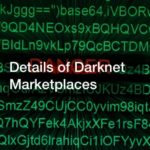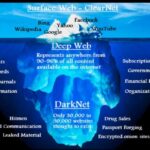Overview of Dark Web Market URLs
The dark web serves as a hidden quadrant of the internet, accessible only through specialized software such as Tor. Within this concealed sphere, numerous dark web market URLs operate as gateways to various anonymous marketplaces. These URLs are essential for users seeking to access the hidden marketplaces that facilitate a range of transactions away from mainstream oversight. Among these, linked marketplaces like dark web marketplaces provide platforms for buying and selling a diverse array of goods and services. Understanding the structure and significance of dark web market URLs is crucial for navigating this complex environment while maintaining security and anonymity. By exploring these URLs, users can grasp the scope and scale of underground digital economies that operate beneath the surface of the open internet.
Definition and Significance of Dark Web Market URLs
The dark web is a part of the internet that is not indexed by traditional search engines and requires specific software, such as Tor, to access. Within this hidden network, dark web markets play a significant role by serving as platforms where various goods and services are exchanged privately and securely. These markets operate through unique URLs that provide access to their respective platforms, often utilizing the .onion domain extension to maintain anonymity and security. Understanding the nature of dark web market URLs is crucial for comprehending how these marketplaces function and their importance within the dark web ecosystem.
Dark web market URLs are specialized web addresses used to reach hidden marketplaces that facilitate the exchange of goods and services often outside legal boundaries. These URLs are typically complex and non-descriptive, designed to hide the identity of the marketplace and protect users from detection. The significance of such URLs lies in their role in maintaining user anonymity, enabling secure transactions, and avoiding censorship or law enforcement infiltration. The structure of dark web market URLs, sometimes incorporating randomized strings or encrypted components, underpins the security features essential for operating within this clandestine environment.
Knowing about dark web market URLs provides insight into the underlying infrastructure that supports illicit activities, but it also highlights the importance of cybersecurity measures and legal considerations. These URLs are vital entry points for millions of users seeking anonymity and privacy in their online interactions. As the landscape evolves, the techniques used to generate and protect these URLs continue to adapt, reinforcing the need for ongoing awareness and research into their characteristics and functions.
Characteristics of Dark Web Market URLs
The dark web is a hidden part of the internet that requires specialized tools to access, with dark web market URLs serving as gateways to various online marketplaces operating within this concealed space. These URLs are typically characterized by their use of the “.onion” domain extension, which is only accessible through anonymizing networks such as Tor. Such URLs are crafted to maintain secrecy, often changing frequently to evade detection and takedown efforts by authorities. Dark web market URLs tend to be complex and unpredictable, featuring numerous alphanumeric characters to deter easy identification. Additionally, they often incorporate encrypted elements to enhance security and privacy for both operators and users. The structure and characteristics of these URLs are vital to understand for anyone researching or operating within this clandestine network, as they form the foundation for accessing various illegal and illicit activities online. The specific URLs associated with dark web markets are elusive by design, ensuring ongoing anonymity and reducing the risk of their discovery or shutdown by external parties.
Common Domain Extensions and Naming Conventions
The dark web hosts a variety of marketplaces that facilitate anonymous transactions and exchanges, often employing unique URLs to ensure privacy and security. Understanding the structure of these URLs, including common domain extensions and naming conventions, is essential for navigating and analyzing dark web markets effectively. These URLs are typically designed to obscure the identity and location of the marketplaces, making them distinct from traditional surface web sites.
Dark web market URLs often utilize specific domain extensions that are associated with anonymity and privacy. The most recognizable extension is .onion, which is used exclusively within the Tor network. These .onion addresses are generated through cryptographic processes, resulting in a string of random characters that serve as the marketplace’s address. Some dark web markets may also use alternative or less common domain extensions, but .onion remains the predominant format.
The naming conventions for dark web market URLs tend to follow certain patterns to enhance security and anonymity. Common characteristics include:
- An alphanumeric string of characters, often between 16 to 56 characters, which is automatically generated and not human-readable.
- Some markets use subdomains, but most opt for a single, randomly generated address to prevent easy identification.
- Addresses are usually followed by the .onion extension, indicating their operation within the Tor network.
Additionally, the URLs are often short-lived, changing regularly to evade detection or shutdown efforts. This practice contributes to the dynamic and clandestine nature of dark web marketplaces. Overall, the design and structure of these URLs serve to maintain the anonymity of the marketplaces and their users, while also conforming to specific naming conventions that facilitate quick access within the concealed ecosystem.
Accessing Dark Web Market URLs
Accessing dark web market URLs requires specialized tools and a cautious approach due to the anonymized nature of the dark web. These markets often operate on hidden networks, making it essential to understand how to navigate secure and private connections. Familiarity with dark web market URLs can help users efficiently find information or services while maintaining their anonymity. For example, some dark web market URLs, like http://nexusafejew45osqaawl2xqjwmincsfvjwuwtm2fums2kjeon7tbmlid.onion, serve as gateways to various marketplaces. Proper techniques and precautions can enhance safety while exploring these sites, which are often hidden behind layered security measures.
Tools and Technologies Required
Accessing dark web market URLs requires a combination of specialized tools and security precautions to navigate this hidden part of the internet safely. These markets often operate on the Tor network, which provides anonymity for both users and vendors. To access these sites, a user must first utilize the Tor Browser, a modified version of Firefox designed to route traffic through multiple servers worldwide, concealing the user’s IP address and location. Once connected, users can enter the dark web market URLs into the browser to reach various marketplaces that facilitate a range of transactions.
Aside from the Tor Browser, additional tools and technologies are essential to ensure security and anonymity while browsing dark web markets. Virtual Private Networks (VPNs) can be used alongside Tor to add an extra layer of encryption, though they should be chosen carefully to avoid compromising anonymity. Security-focused operating systems like Tails or Whonix provide further protection by isolating browsing activities to prevent leaks that could reveal identity details.
Maintaining anonymity also involves good operational security practices, such as avoiding personal information, not using identifiable payment methods, and verifying the credibility of market sites. Many dark web markets have a variety of URLs that change periodically, making it critical to stay informed about updated dark web market URLs through trusted forums and community channels. By combining the right tools and cautious behavior, users can access dark web markets securely while maintaining privacy and safety.
Locating Market URLs
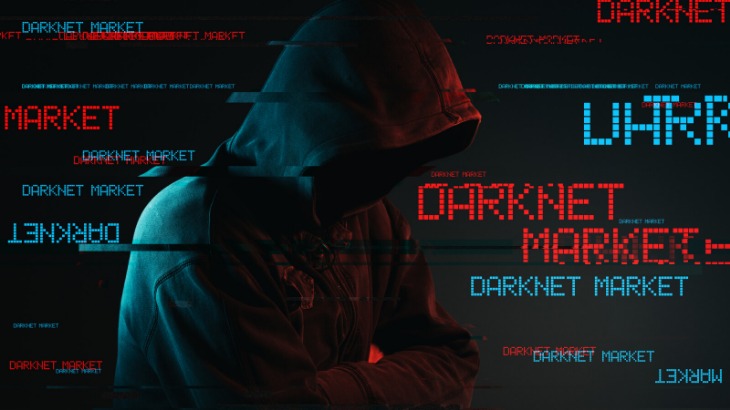
Accessing dark web market URLs requires careful navigation and an understanding of how hidden websites function within the Tor network. These markets are often accessed through specialized browsers designed to provide anonymity and security while browsing. To locate dark web market URLs, users typically rely on community forums, dark web directories, or trusted frequenters who share updated links. It is important to exercise caution when searching for such URLs, as many links are frequently changed or taken down to maintain the integrity and security of the markets. For example, users might encounter URLs like http://examplemarketonion1.onion or http://anothermarketonion2.onion which serve as entry points to various dark web marketplaces. Ensuring the validity of these URLs and understanding the risks associated with accessing dark web markets are crucial steps for anyone interested in exploring this hidden segment of the internet. Always prioritize anonymity and security by using reliable tools and staying informed about the latest updates in dark web navigation practices.
Risks and Precautions When Accessing URLs
Accessing dark web market URLs requires careful consideration due to the specialized nature and inherent risks associated with this part of the internet. Dark web markets often operate on encrypted networks, primarily using anonymizing tools like Tor to preserve user privacy and security. When attempting to access dark web market URLs such as http://examplemarket1.onion, it is essential to prioritize safety and legality. These sites are frequently used for a variety of purposes, some of which may be unlawful or unethical, so understanding the risks involved is critical.
One of the primary risks when accessing dark web URLs is exposure to illegal content or activities, which can have serious legal consequences. Additionally, these markets are common targets for cybercriminals looking to steal personal information or distribute malware. Using unsecured networks or outdated software can increase the chances of falling victim to scams, hacking attempts, or losing sensitive data. Therefore, employing strong security measures such as using a reputable VPN, keeping your system updated, and avoiding sharing personal information is advised when visiting dark web URLs.
Precautions are essential to ensure safety, including verifying the legitimacy of the site before engaging in any transactions. Always use encrypted connections and avoid downloading files from unknown sources. It’s advisable to use dedicated devices for dark web activities to minimize risks to your primary system. Furthermore, understanding the laws in your jurisdiction regarding access to dark web sites is crucial, as legal repercussions may arise from engaging in certain activities. Being informed and cautious significantly reduces potential dangers when exploring dark web market URLs such as http://examplemarket2.onion.
Features and Structures of Dark Web Market URLs
Dark web market URLs possess unique features and structures that distinguish them from conventional websites. These URLs typically utilize the .onion domain, which is accessible only through the Tor network, ensuring anonymity and protection of users’ identities. The structure of dark web market URLs often includes a randomly generated string of characters, enhancing security and making it difficult to predict or trace. For example, some of these URLs, such as dark web market links, follow a similar pattern with a complex combination of letters and numbers. This randomness serves both as a security feature and a means to create distinct addresses for different marketplaces. Understanding the structure and features of dark web URLs is crucial for navigating this hidden part of the internet responsibly and securely.
URL Format and Length
Dark web market URLs exhibit distinctive features and structures that set them apart from regular web addresses. These URLs are primarily designed to ensure anonymity and security for users and vendors operating within the dark web ecosystem. Typically, such URLs utilize the .onion domain, which is accessible only through specialized software like the Tor browser. This domain suffix is a key identifier of dark web markets, providing a layer of obscurity and privacy.
The structure of dark web market URLs often consists of a random string of alphanumeric characters, followed by the .onion extension. These random strings serve as unique identifiers for each marketplace or vendor, making it difficult to predict or access other sites without specific knowledge. For example, URLs might appear as abc123def456ghi789.onion. This randomness enhances security by preventing easy enumeration of sites and reduces the risk of takedown attempts.
- Among these items are hacking utilities, stolen banking info, and compromised credentials.
- For example, in November 2023, an undercover law enforcement agent received several tablets that purported to be oxycodone, which were purchased on Incognito Market.
- Ensure your application security by addressing concerns before they impact production.
- Short.io offers a practical mix of simplicity and advanced features, making it a solid choice for businesses and marketing teams.
In terms of URL format and length, dark web market URLs tend to be longer than typical web addresses, often ranging from 16 to 56 characters in the main domain. The length varies depending on the specific service or marketplace but generally remains within this range. The extended length and randomized structure contribute to the difficulty of tracking or blocking these URLs, safeguarding the anonymity of users and operators.
Overall, dark web market URLs are characterized by their unique structure, domain, and length, all of which are intentionally designed to prioritize security and privacy. Their complex, randomized format and exclusive .onion domain help maintain the clandestine nature of dark web marketplaces, supporting secure and anonymous transactions for users seeking these platforms.
Security Measures Embedded in URLs
Dark web market URLs possess unique features and structures that distinguish them from regular web addresses. Typically, these URLs are designed to ensure user anonymity and facilitate secure transactions within clandestine markets. They often utilize a specialized domain extension, commonly “.onion,” which is only accessible through anonymizing networks like Tor. The structure of these URLs usually includes a randomized or semi-randomized string of characters, enhancing their unpredictability and making each site more difficult to track or block. Dark web market URLs often contain lengthy, complex strings that serve as technical identifiers for the specific marketplace or vendor. This randomness acts as a deterrent against external monitoring efforts and helps maintain the privacy of users engaging with these sites.
In addition to their unique domain structures, dark web market URLs often embed security measures directly within their configurations. For example, they are designed to operate exclusively over secure, encrypted connections, ensuring that data exchanged remains confidential. Many URLs include features such as HTTPS encryption and additional layers of security like hidden service protocols, which conceal the server’s physical location and protect it from takedown attempts. These embedded security features are critical in maintaining the anonymity and integrity of transactions, reducing the risk of exposure or interception. Overall, the combination of complex URL structures and embedded security measures plays a vital role in safeguarding operations within the dark web market ecosystem.
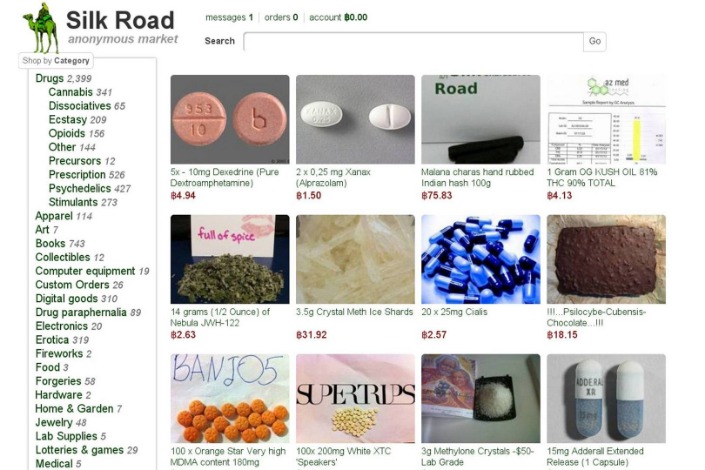
Changing and Deprecated URLs
Dark web market URLs possess distinctive features and structures that set them apart from conventional websites. Understanding these characteristics is essential for navigation, security, and analysis within the anonymous marketplace environment. These URLs are primarily designed to maintain user privacy and ensure the security of the marketplace’s operations, often utilizing specialized domains and coding styles that reflect their clandestine nature.
One of the most notable features of dark web market URLs is their use of the .onion Top-Level Domain (TLD), which is exclusively accessible through the Tor network. This domain structure ensures that the location of the servers remains hidden, providing anonymity to both the operators and users. Dark web markets frequently incorporate random or semi-random alphanumeric strings in their URLs to obscure their identity and location further. For example, core marketplace URLs tend to follow patterns such as a string of characters followed by .onion.
The structure of these URLs often includes several key elements:
- The base domain, which is unique and randomly generated, ensuring that each market or page has a distinct identity.
- Path components that may lead to specific vendor pages, categories, or listings within the marketplace.
- Occasionally, URLs can include parameters for filtering or sorting data, although many prioritize simplicity for ease of access and obfuscation.
Dark web market URLs are subject to change and deprecation for security and operational reasons. Markets often update their URLs to evade detection, law enforcement crackdowns, or technical issues. When a URL becomes deprecated, it is replaced with a new one, which may follow a similar pattern but with a different random string or domain name. This constant evolution makes tracking and maintaining an updated list of active URLs challenging.
Because of this dynamic nature, counterfeit or successor URLs may appear, necessitating vigilant monitoring to ensure access to genuine markets. New URLs are often announced only through secured or clandestine channels to trusted users, further complicating efforts to navigate or analyze these platforms. The ever-changing URLs serve both as a method of security by obscurity and a measure to limit law enforcement interference.
Legal and Ethical Considerations

Exploring dark web market URLs involves understanding the complex intersection of technology, legality, and ethics. Accessing these hidden marketplaces raises significant concerns related to privacy, security, and lawful conduct. It is essential to be aware of the legal and ethical considerations surrounding the use of dark web URLs, such as http://abacusborncrffug2ytuqx3fczqbou4mrev56pfliv7ipjfi4uib7cad.onion. Engaging with these sites can lead to serious legal consequences and ethical dilemmas, emphasizing the importance of responsible online behavior and compliance with applicable laws.
Legality of Dark Web URLs
When exploring dark web market URLs, it is crucial to consider the legal and ethical implications associated with such sites. Many dark web marketplaces operate in legal gray areas or outright engage in illegal activities, including the sale of illicit substances, stolen data, or counterfeit goods. Accessing or using these URLs can potentially lead to serious legal consequences depending on the jurisdiction and the nature of the content involved.
Legally, navigating to dark web market URLs is often a risky activity, especially if it involves engaging with the content or transactions that violate local laws. Authorities worldwide continually monitor and act against illegal online marketplaces to prevent criminal activities. Even simply visiting a dark web marketplace URL might raise concerns or surveillance, particularly if the site hosts illegal content or facilitates unlawful transactions.
Ethically, users should reflect on the impact of their online activities. Many dark web sites, including some market URLs, may contribute to criminal enterprises, exploitation, or other harmful practices. Engaging with such sites can inadvertently support illegal economies and put personal data or security at risk. Responsible browsing and awareness of the legal boundaries are essential to ensure ethical online conduct.
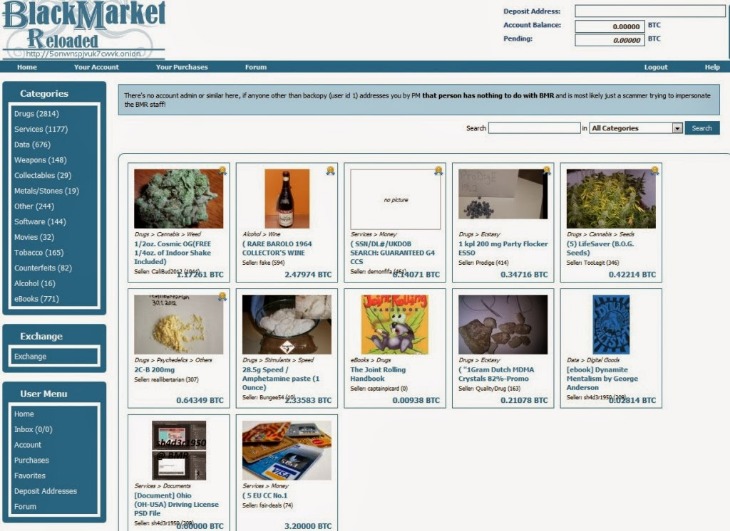
It is essential to recognize that accessing dark web market URLs carries significant legal and ethical responsibilities. Users should be cautious, stay informed about the laws in their region, and avoid participating in or supporting illegal activities conducted through these sites to uphold lawful and ethical standards online.
Law Enforcement Tactics
Accessing and understanding dark web market URLs involves navigating a space that operates outside the bounds of standard legal and ethical frameworks. These markets often facilitate the exchange of illicit goods or services, raising significant concerns about legality, privacy, and morality. Law enforcement agencies worldwide are continuously developing tactics to monitor, infiltrate, and dismantle such marketplaces to curb criminal activities. The identification of dark web market URLs is a crucial step in these efforts, allowing authorities to track criminal transactions and gather intelligence on illegal networks.
From an ethical standpoint, individuals should be cautious about engaging with or even exploring dark web markets, as it can inadvertently support illegal operations or put their personal information at risk. Law enforcement tactics include deploying specialized software to investigate onion sites securely and anonymously, alongside traditional surveillance methods. These efforts often involve undercover operations, digital forensics, and collaboration across jurisdictions to dismantle these illicit marketplaces.
Maintaining awareness of how dark web market URLs function and evolve helps in better understanding the scope of cybercrime. It is essential for users, policymakers, and cybersecurity professionals to adhere to ethical guidelines and legal statutes when investigating or discussing these platforms, ensuring that efforts to combat illegal activities do not infringe on individual rights or privacy. Overall, addressing the challenges posed by dark web market URLs requires a balanced approach that respects legal boundaries while prioritizing public safety and security.
Ethical Concerns and Risks
Exploring dark web market URLs involves understanding numerous legal and ethical considerations that are critical for participants and observers alike. Engaging with dark web marketplaces often entails navigating a landscape that operates outside of conventional legal frameworks, raising significant ethical concerns related to legality, safety, and moral responsibility. The clandestine nature of these markets, which may include platforms with URLs such as darkwebmarketexample.onion, presents risks not only from a legal perspective but also in terms of moral implications surrounding the activities conducted therein.
Engaging with dark web market URLs can expose individuals to legal violations, including facilitating illegal trade of substances, stolen data, or counterfeit goods. Many jurisdictions strictly prohibit activities enabled through these platforms, and accessing or using dark web marketplaces can lead to criminal charges or substantial penalties. Ethically, participating in or supporting marketplaces that facilitate illegal transactions compromises moral standards, especially when these activities involve harm to others or violate societal norms.
Further, the anonymity inherent in dark web markets complicates enforcement and accountability, amplifying the risk of scams, fraud, and exploitation. Users must weigh the potential ethical costs of their actions, as involvement in transactions through dark web market URLs such as cryptoshopdarkmarket.onion can implicitly support criminal enterprises. Consequently, individuals should be aware of the substantial legal and ethical risks, emphasizing the importance of lawful behavior and responsible decision-making when navigating or discussing these clandestine online venues.

